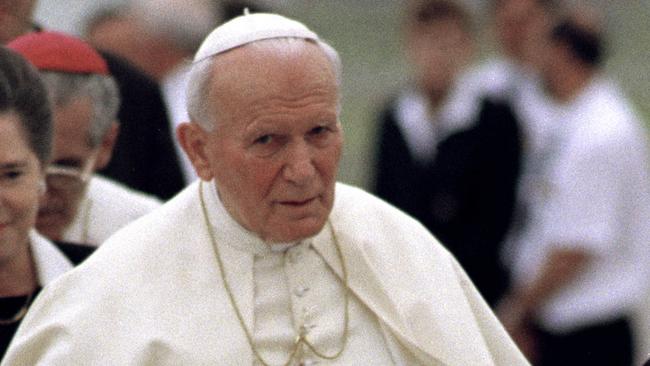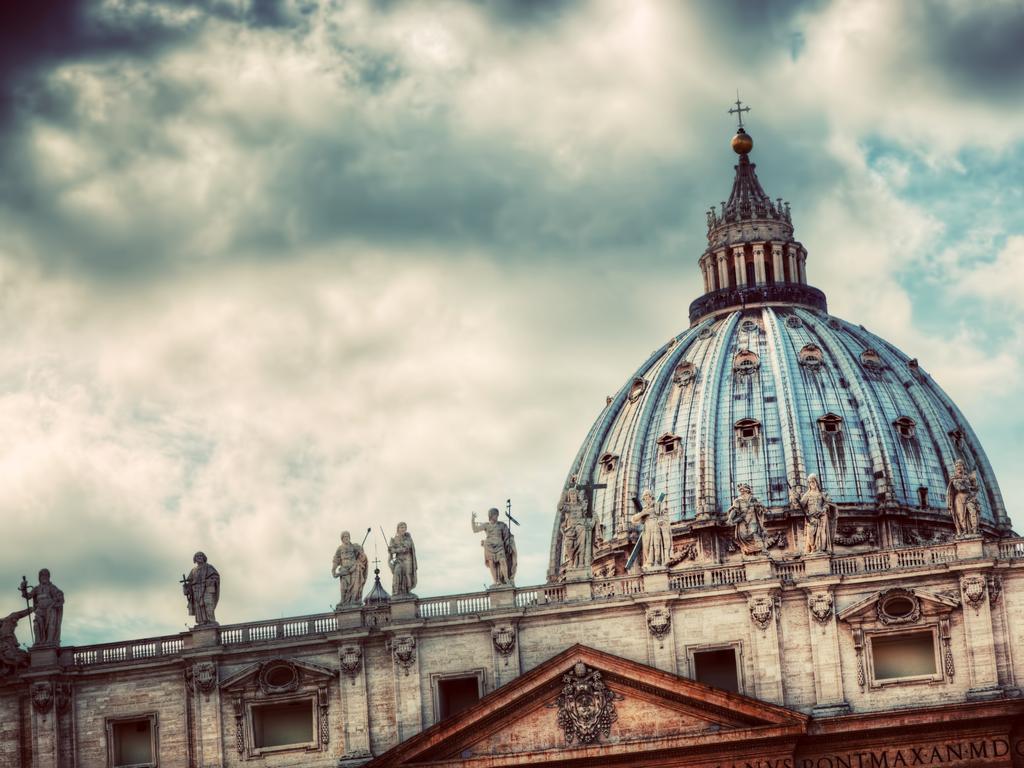Church has a vital role, but a limited one
Pope John Paul II’s thoughts on dialogue across national borders, across ideological lines, and across disciplines resonate today.

We still hear calls to “keep religion out of politics”, echoed presently by our Prime Minister, who professes a deep Pentecostal faith and is content to be photographed in worship at election time, but refuses to discuss publicly how his concept of Christian ethics inform his politics. It needn’t be like that.
The Gospel is both a spiritual Gospel and a social Gospel, and if it is a social Gospel then it is in part a political Gospel, because politics is the means by which society chooses to express its collective power. The Gospel is in part an exhortation to social action. It doesn’t provide a mathematical formula to answer all the great questions of our age. But it does offer a starting point to debate those questions within an informed Christian ethical framework which always preferences social justice, the poor, and the powerless. And that includes protecting the creation itself.
Greg Craven rightly highlights four solid principles of Catholic social teaching: the dignity of the human, the common good, subsidiarity, and solidarity. These are proud principles. One does not have to be Catholic or committed to a distinctive Christian theology to commit to them. It is, however, too harsh to conclude, as Craven does, that “Australian politics in the last 30 years has been more likely to be informed by a kind of disconnected pragmatism than by a framework of principles”.
It’s one thing to enunciate time-honoured principles, but it is another to have them inform public policy and administration. I agree with Craven that “part of the genius of Catholic social teaching is its ability to hold its principles in creative tension” and this can be done without diminishing their potency. Whether liberal, social democrat, or conservative, “we would all like to see more justice, more equality, more liberty, more efficiency in Australian society.” But how is this to be done?
My sense is that Craven sees the teaching of Pope John Paul II in encyclicals such as Sollicitudo rei socialis and Centesimus annus, which in turn were built on the insights of Pope Leo XIII in his 1891 encyclical Rerum novarum, as being the epitome of Catholic social teaching.
The successful approach in modern politics is to commit to dialogue, taking the science seriously, acting on the evidence, and providing the opportunity for all those affected by prospective policies to have a place at the table of political deliberation. It is no longer a matter of popes or bishops from the sidelines laying down immutable principles and univocal responses as to how those principles are to be applied. It is critical the foundations of the faith and ethical imperatives to which they give rise are articulated clearly.
What then is to be done? Of course, the pope proposes the need for education and spirituality. But he dedicates an entire chapter of his encyclical to lines of approach and action. Dialogue is central to every one of them: dialogue in the international community, dialogue in national politics, dialogue and transparency in decision-making, dialogue between religion and science, and politics and economy in dialogue with human fulfilment. This is where Catholic social teaching provides ongoing assistance for those of us committed to taking on the big political challenges confronting the planet and every nation. Fostering dialogue across national borders, across ideological lines, and across disciplines is the key – while still, for those of us from a Christian tradition, anchored in the deep ethical principles of the faith.
Drawing us back to the principles of Catholic social teaching, the pope is able to call decision-makers to have due regard for the common good and not just the interests of their constituents, and to weigh the interests of future generations and not just those who exercise power and voice at the moment. The inability of politicians on all sides to deliver optimal outcomes on issues such as climate change and inequality warrants the sort of papal corrective which we find in Laudato si’.
Provided popes and their advisers remain engaged and troubled by the challenges of the age, whatever they may be, always participating in humble dialogue with experts and decision-makers, the principles of Catholic social teaching will continue to provide a framework for deliberation and action. But whenever popes and their advisers pontificate about solutions and answers comprehensible only to faithful Catholics, forgoing the dialogue with experts and decision-makers or those beyond the church, their teachings will be sterile, dry, and irrelevant to the tasks at hand. At the national level, bishops need to play their part in hosting and fostering such dialogue. But there has not been much of that in Australia these past 30 years. That might be a contributing factor to the malaise in our politics identified by Craven.




To join the conversation, please log in. Don't have an account? Register
Join the conversation, you are commenting as Logout